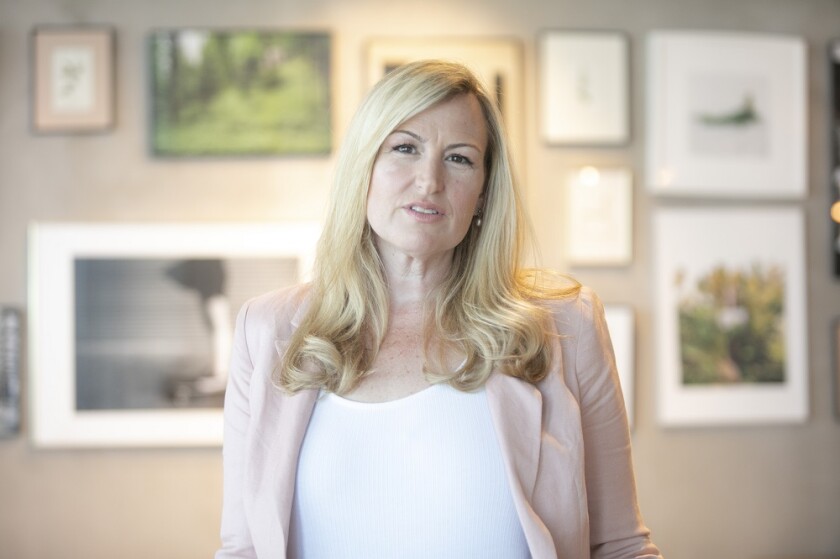Always tell the truth. That’s the approach that Yonit Goldberg, co-founder and managing partner of 11Stream, and her team take. Good, bad or indifferent, she stresses the need to have integrity in one’s work and being honest around managing expectations are top of her list of priorities.
As the co-founder of a Middle Eastern digital infrastructure consultancy company, Goldberg is uniquely placed to comment on the Middle East’s wholesale telecoms and infrastructure market.
“The Middle East is gaining a lot of traction, and this is driven mostly by the modernisation of the region and the geopolitical changes that include the Peace Agreement.”
Goldberg is referencing the 2020 Israel–United Arab Emirates normalisation agreement, which saw collaboration between the two nations open up, including the inauguration of direct telephone services between them and the unblocking of direct dialling Israel’s +972 country code.
“The other driver is that the fact that Middle Eastern countries such as the UAE, Saudi and Oman, understand that communication is key for development, prosperity and connectivity Europe and America at one end and on the other side, Asia.”
This in turn has meant that wholesale carriers and those in network infrastructure recognise the Middle East as a place for further investment and future growth. This is leading to technological innovations making waves across the region, the biggest of which is cloud.
“We see, for example, that the UAE is a major cloud region, with the likes of Saudi Arabia taking steps towards being that. Thanks to the Peace Agreement, you see that there’s cloud backup between the regions, because the latency is very small and the content is very similar,” Goldberg says.
At the same time, traffic and data that can go East to West and vice versa can now go via Israel, creating new complementary corridors in addition to Egypt, improving these routes’ redundancies and latencies, which “brings new products, new companies and new technologies” to the region.
The data centre and colocation market across the region continues to proliferate, but build a successful data centre business in any market requires three things, according to Goldberg: “Electricity, communication and connectivity, and customers.”
“Once you have good communication and connectivity you are on a roll,” she says. “We see that data centres are impacted by submarine cables and fibre. We see that data centres are also impacted by hyperscalers that carry a lot of data from one cloud region to another. Connectivity is the anchor infrastructure.”
Inflation continues to be the biggest macroeconomic factor impacting global businesses, and the Middle East is no exception, which Goldberg reminds us “is not an isolated zone”.
“While the Middle East is, of course, affected by the global recession and rising inflation rates, this is somewhat balanced by the demand,” she explains. “There’s still high demand for communication services and demand is important for stabilising inflation and to keep businesses working.”
She also points out that one of the key catalysts for staving off high inflation and recession is investment in infrastructure.
“We at 11Stream consult with many different businesses, including governments, and try to educate them on that fact that infrastructure investment is key,” Goldberg says.
While demand means its largely business as usual for the 11Stream team, Goldberg adds that businesses are a lot more cautious than they were previously.
“The cost of financing is small now. You have to better shape your business plan and find better business models,” she says. “We at 11Stream work with one of the big four accountancy firms to give better solutions and better financial models, trying to find the balance between the current macroeconomy and the microeconomy.”
To do this, she says, 11Stream firm tries to form partnerships between global players and local players to add bigger spend and bigger money to bring much needed stability to the smaller businesses and mitigate risks to them.
In the context of this regional picture, the competitive landscape in the Middle East’s data centre market continues to be the biggest sector for growth and opportunity. In fact, Goldberg shared the findings of the company’s most recent data centre market study, which, to date, has a track record of being 97% accurate.
“Automation is a big area of development for the Middle East, particularly in data centres, as we’re a bit behind. Big Tech tends to bring a lot of innovation in this area, so partnering with American global players will drive more automation here,” she says.
Goldberg sees consolidation and globalisation as other market opportunities, “because investment costs are so high, maintenance and operation costs, as well as the fact that the customers are global, this will be the trend”.
Power usage effectiveness (PUE) is another area of opportunity in Goldberg’s opinion, given the Middle East’s special climate that requires “a connected community to develop new technology to combat this unique weather, as well as to drive sustainability, as we’re living in the same climate”.
The last thing to consider is security, according to Goldberg. “We see that the data centre world is moving toward Secure Access Service Edge [SASE], Software as a Service [SaaS], especially cyber secure networks”. She believes security will come for the forefront in 2023 and 2024.
With a background in business development in network infrastructure, Goldberg has more than 20 years of industry experience.
“I started in sales and business development at a company that used to build network backbones – class 4 and class 5 – and the business evolved. We started as a voice system, we transitioned into data, which turned in content delivery networks [CDN], and eventually the CDN became the data centre.”
It was during this time that she noticed that the market was changing because when it comes to technology, as Goldberg puts it, the United States always starts, Europe develops and then the Middle East adopts it.
“I started to see what was going on in terms of data centres, and I understood, especially with the cloud regions, that something big was going to happen and this is where 11Stream gained its biggest success,” she explained.
Goldberg says the first reason 11Stream achieved this was by understanding the market, and the second is the talented people who work there, including herself and her business partner, Oren Nauman.
“Oren brings the financial and strategic thinking to the table, alongside my technical and industry experience. This is how we developed 11Stream to combine not only the business development side of things but also strategy about finance – especially these days with recessions and inflation.”
The company also helps a lot of Middle Eastern companies enter the global market, which requires a different type of thinking.
“We help them balance this ‘local versus global’ thinking and, of course, forge global partnerships,” she says.
As a woman in the IT communications space, Goldberg sees her role as bringing something new to the table. “Women bring a different, more empathetic style to a given situation,” she says. “We see things differently, and we know how to accommodate plan B and plan C.”
Although Goldberg acknowledges it can be hard for a woman to operate in a male-dominated space, maintain her position and fight for what she believes, “at the end of the day, if you bring value, if you bring knowledge and bring business, it doesn’t matter”.
This is what makes 11Stream unique for Goldberg, as having herself and Nauman in leadership roles creates much-needed balance.
The rest of 2023 is pretty much set for Goldberg and her team. Their priorities are to create a Middle Eastern corridor in Israel, and promote the globalisation of the Middle East’s data centre business.
“We’re also working on couple of projects to make the Middle East more modern and attract more companies – not through M&A but through strategic partnerships – as well as more fibre-to-the home and submarine cable projects,” says Goldberg. “We also hope to encourage further cloud adoption by government.”
These priorities are what Goldberg believes will drive more infrastructure investment into 11Stream and help manage the current period of high global inflation. She adds that this will require new thinking, because “governments and the people who work for the government – we call ‘server huggers’ – they like to be able to have and monitor their own infrastructure”.
For Goldberg, creating progress and driving prosperity always starts with the government buying in. Using Saudi Arabia as an example, she says, “Once the government was fully committed to cloud, the train left the station”.









